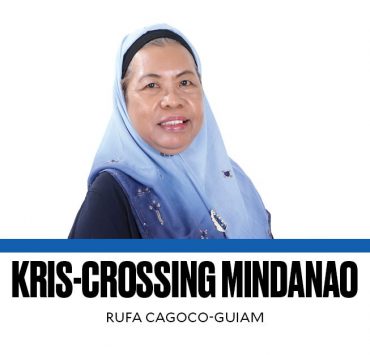Liberation theology (2)

Last week I wrote up the first part of “Liberation theology,” paying homage to the Dominican theologian from Peru, Fr. Gustavo Gutierrez, who passed away Oct. 22.
Father Gutierrez’s “Theology of Liberation: History, Politics, Salvation” (more often cited as “Theology of Liberation), published in Spanish (1971) and English (1973) with a second edition in 1986, influenced many, including Catholics and Protestants, challenging a rethinking of what it means to be Christians. His writings came at a crossroads not just for Christianity but for the world.
Amid the affluence that came after the World War II, many inequities remained, even worsening, and Gutierrez made people question the very idea of development: who was benefiting from the new prosperity? Gutierrez criticized development as neglecting the need for people to live with dignity and to be agents of their own destiny. The goal should not be “development” but “liberation,” he wrote.
For the Philippines, that call meant questioning the existing dole-out “charity” programs of the churches, especially from the Catholics, which did little to solve problems in the long-term, leaving people dependent. We see that in the way mendicancy has taken epidemic proportions, children sent out into the streets to beg, especially during our three-month Christmas season.
Gutierrez’s book could not have been more timely, the 1970s marked by the rise of United States-sponsored dictatorships in Latin America and the Philippines, all Catholic countries with the bloody dictatorships, often blessed by the bishops. In the Philippines, liberation theology resonated, gaining a foothold, especially in social action agencies and in seminaries and formation institutes. The more open bishops and their dioceses allowed the establishment of Basic Christian Communities or BCC (also sometimes called Basic Ecclesial Communities or BEC) that combined liturgical activities and catechism with health, literacy, and even farming and livelihood activities.
The BCC were often persecuted, some leaders even assassinated by the government’s military and paramilitary forces. The persecution continues to this day, especially directed against those working with the lumad (indigenous peoples in Mindanao). Reflecting the times we live in, I decided not to name Filipino liberation theologians and advocates, concerned that they might end up Red-tagged but I hope for better times when we can pay tribute to them as well, openly.
There have been many Catholics and Protestants who transformed Gutierrez’s liberation theology into a lived faith. Later this month is the 41st anniversary of the Cassandra Martyrs of Charity, 12 Filipino and foreign Catholic and Protestant workers who died on an interisland ferry between Naisipit, Agusan del Norte and Cebu City when the ferry sank, during a storm. The 12 were on their way to a meeting/retreat related to their work with the poor, mostly in health care. Survivors of the mishap saw the martyrs (an official title bestowed by the Catholic Church) helping people to get into lifeboats, delaying their own rescue.
Gutierrez and other liberation theologians were harassed too. Gutierrez was subjected to a Vatican investigation but he was cleared of “doctrinal error.” He visited the Philippines in 2002, lecturing at the University of Santo Tomas and visiting a seminary in Pampanga where he had many “fans.”
Liberation theology has taken many forms since the 1970s, expounded in relation to women’s issues, ecology, and the environment. From the beginning too, in the Philippines, liberation theology influenced many, including lay people, working in health care, where theology “met” the more secular writings of the Brazilian educator Paulo Freire, who wrote about “conscientization,” working with the poor to “decode” their situation of oppression and to take action.
Liberation theology was revolutionary but was gentle. I knew, and remember the Cassandra martyrs as the kindest people imaginable, living simply with the poor. Two bishops who championed liberation theology also come to mind, gentle yet fiery. One was Bishop Oscar Romero of El Salvador, outspoken advocate of human rights, assassinated in 1980 as he said Mass. His last words: “May God have mercy on the assassin.” The other well known liberation theology advocate was the Brazilian Archbishop Helder Camara, with his famous quote: “When I feed the poor, they call me a saint, but when I ask why the poor are hungry, they call me a communist.“
Father Gutierrez was once asked how he would have written his book in another time rather than in the 1970s. He replied invoking the metaphor of a love letter to a wife. Love remains alive, he declared, but it grows deeper and changes its manner of expression.
May we see more people like Father Gutierrez writing about both theology, liberation and love, for people of all faiths, guiding us through the storms ahead. (Yes, I’m thinking of the US elections.)
—————-
mtan@inquirer.com.ph

















